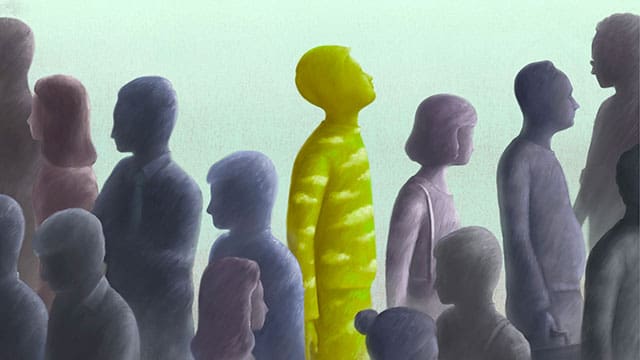How faith, science, and education can guide us through times of rapid change

For interview requests, click here
Change is inevitable. But where will it take us? Will it lead to growth and hope or chaos and despair? We’re living through rapid shifts in technology, economics, and culture. The question isn’t whether we can stop these changes – we can’t – but how we respond to them. To move forward, we must draw on the wisdom of faith, the precision of science, the power of education, and the strength of working together.
Faith has long been a source of strength in tough times. It helps us make sense of suffering and fosters a sense of community. Christianity tells us to “bear one another’s burdens,” Buddhism emphasizes mindfulness, and Islam upholds the protection of the vulnerable. For centuries, faith has helped people find meaning in difficult situations and build resilience. Yet faith, when misinterpreted or manipulated, can be weaponized to harm rather than heal. Extremist groups have twisted religious teachings to justify violence, despite Islam’s clear condemnation of suicide and other faiths’ similar calls for compassion.
Extremism isn’t limited to religion. Nationalism, too, can take a dangerous turn. During the Second World War, Japan celebrated kamikaze pilots for their self-sacrifice, much like some extremists glorify violence today. In both cases, fanaticism overrides reason, leading to devastating consequences. Whether motivated by faith or patriotism, compassion and understanding must always guide us.
 Collaboration and resilience are the keys to thriving in an uncertain future |
| Recommended |
| Without meaningful change, society faces a steady decline into chaos
|
| Embrace change and treat it as an opportunity
|
| Recognizing our privilege leads us on the path to positive change
|
Science, in contrast, offers practical tools to address despair on both personal and societal levels. Advances in mental health care have saved countless lives by treating conditions like depression and trauma. Sociologist Émile Durkheim, often called the father of sociology, explored these issues over a century ago. His work on suicide revealed how isolation and societal instability can push people into despair. He identified different types of suicide, such as anomic suicide, which arises from societal breakdown, and egoistic suicide, stemming from isolation. These insights remain highly relevant today as governments confront rising mental health challenges.
Durkheim’s research highlights a path forward: policies that reduce alienation, strengthen community bonds, and promote inclusion. Science not only helps us understand the roots of despair but also provides solutions, from better mental health care to programs that foster human connection.
Education is another powerful tool in addressing these challenges. Programs in social-emotional learning (SEL) teach us to manage emotions, build empathy, and maintain healthy relationships. Meanwhile, media literacy and critical thinking equip individuals to question harmful narratives and resist misinformation that divides communities.
But education must also prepare us for adversity. Resilience – grit, perseverance, and the ability to bounce back – must be a core part of learning. While fostering emotional well-being is crucial, it must be balanced with equipping people to face life’s challenges. Without this balance, we risk raising individuals unprepared for hardship. Beyond personal growth, education must address societal divides. Schools and community programs should bridge gaps, reduce alienation, and create spaces where everyone feels they belong.
None of these efforts can succeed in isolation. Collaboration is essential. Faith leaders, scientists, educators, and policymakers must pool their knowledge and resources. Initiatives like UNESCO’s education programs are a good starting point, but their real impact comes when global ideas are adapted to local realities. Change becomes meaningful when tailored to the unique needs of small towns, rural areas, or underserved neighbourhoods.
History shows us what happens when we don’t think things through. The Industrial Revolution brought progress but also left deep inequality in its wake. Revolutions like France’s in 1789 promised liberty but often delivered violence. Even well-intentioned initiatives can fail when they overlook the human element. Fiction also offers cautionary tales: in Lionel Shriver’s We Need to Talk About Kevin, unchecked alienation and despair lead to devastating consequences. Such stories remind us of the real stakes and the importance of careful action.
As we face the challenges of change, some principles are clear: Faith should unite us, not divide us. Science must illuminate the way forward without losing sight of humanity. Education should empower us, balancing emotional intelligence with resilience. Collaboration must bridge divides rather than widen them. Above all, we need humility, remembering how deeply these changes affect people’s lives.
The stakes couldn’t be higher. Ignoring these challenges risks despair, violence, and lives lost to hopelessness. But if we act thoughtfully and with resolve, we can transform change into an opportunity for growth, unity, and resilience. Let’s rise to the challenge, strengthened – not broken – by the changes ahead.
Dr. Perry Kinkaide is a visionary leader and change agent. Since retiring in 2001, he has served as an advisor and director for various organizations and founded the Alberta Council of Technologies Society in 2005. Previously, he held leadership roles at KPMG Consulting and the Alberta Government. He holds a BA from Colgate University and an MSc and PhD in Brain Research from the University of Alberta.
Troy Media is committed to empowering Canadian community news outlets by providing independent, insightful analysis and commentary. Our mission is to support local media in building an informed and engaged public by delivering reliable content that strengthens community connections, enriches national conversations, and helps Canadians learn from and understand each other better.
